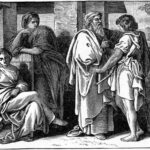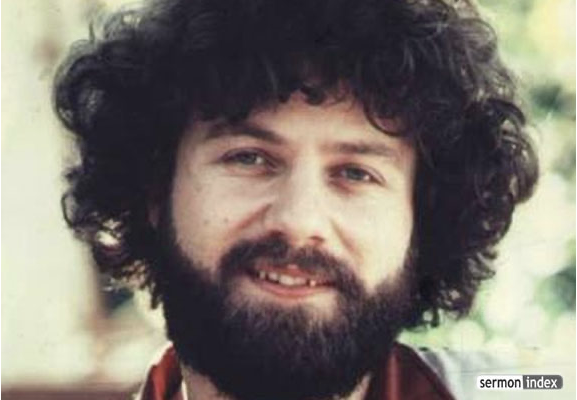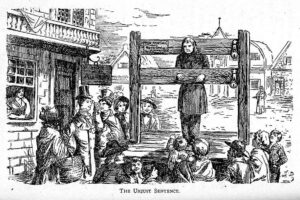In the Fall of 2020, following the footsteps of several admired professors at Heritage Theological Seminary, I began my PhD studies at Wycliffe College. In line with North American practice, I devoted the first two years of my program to structured coursework, consisting of small seminars of 10-15 PhD students, led by one to three professors who facilitated in-depth discussions based on extensive readings.
As a fresh MDiv grad from Heritage, diving straight into a PhD program at Wycliffe was simultaneously refreshing and challenging. On the one hand, moving into the PhD program felt like the natural continuation of academic rigour I experienced at Heritage. Especially when it came to biblical languages and knowledge of the Bible, I felt well-prepared for the next level of education. On the other hand, attending Wycliffe (one of several colleges that comprise the Toronto School of Theology at the University of Toronto), I felt like I needed to learn a whole new language: namely, a theological one.
While Wycliffe College rightly advertises itself as an evangelical college, several caveats to that identity surprised me as an evangelical Baptist (FEB) beginning my studies.
First, evangelical Anglicans, especially those in the Anglican Church of Canada, are part of a very different stream of Evangelicalism with which I was unfamiliar. For example, while there was a shared appreciation for a figure like John Stott, when a student mentioned Don Carson (a theologian who loomed larger than life at Heritage) in one of my Wycliffe classes, the professor had to admit that he had not, in his memory, read anything from him. As an evangelical Baptist at Wycliffe, I had to quickly brush up on my knowledge of Karl Barth and become familiar with theologians such as Robert Jenson, Katherine Sonderegger, and David Yeago.
Second, as a part of the Toronto School of Theology, while mainly Wycliffe students filled my courses, my seminars all included students from across the colleges. For the first time in my academic life, I was having deep theological discussions with United Church ministers, Roman Catholic theologians, and Eastern Orthodox priests. While Heritage certainly prepared me to hold my own in these conversations confidently, it was a novel sensation to partner with a Jesuit deacon to make a presentation on 18th-century theodicy from the writings of Ottobah Cuguano.
Needless to say, five years in, pursuing a PhD at Wycliffe College has been a unique experience!
Yet, the most surprising aspect of this academic journey has been how taking courses at Wycliffe introduced me, a graduate of Heritage and lifelong member of FEB churches, to a robust tradition of Baptist thought that I expect most North American Baptists have never encountered before.
In the Winter of 2021, I took a course entitled “Bread, Wine, and Water: Baptism and Eucharist as Sacraments of the Gospel.” Taught by Joseph Mangina, the class intended to “develop a constructive Anglican theology of the sacraments.” Yet, in a quintessentially Wycliffe fashion, the course description included a line that caught my eye and led me to enroll in the seminar: “We will engage texts and authors from across the ecumenical spectrum.“ Over the semester, we, of course, read numerous Anglican materials. Still, we also read entire books from Eastern Orthodox, Presbyterian, and, as I was surprised to learn, Baptist perspectives.
The final major reading of the course was John Colwell’s Promise and Presence: An Exploration of Sacramental Theology. When I first saw the title and picked up the book at the bookstore, I did not give it a second thought. Based on the title, the generic image of the Last Supper on the cover, and the unrecognized author’s name, I assumed it would be an exploration of the sacraments from an Anglican perspective. Imagine my surprise when I finally read the work, and this opening line of the preface greets me: “I suspect that some may view this work as an inexcusable long letter of resignation: it is uncommon-to say the least- for any Protestant, less still a non-conforming Baptist, to attempt what I am sure some will interpret to be a defence of the seven sacraments as recognized by the Roman Catholic communion” (Colwell, Promise and Presence, xi). It turns out that Colwell stands as a leading contemporary Baptist theologian in the United Kingdom!
While I will not offer a full book review here (perhaps another piece), I will provide an overview of the book’s argument and structure. Essentially, Colwell’s main point is this: Flowing from traditional doctrines of God (the Trinity) and Creation, Christians ought to appreciate “the truly gratuitous and mediated nature of God’s presence and action through sacramental signs within creation” (Colwell, Promise and Presence, 60). From this point, Colwell encourages his readers to consider both the Church and the Word in terms of their “sacramentality” and their role in defining and contextualizing the sacraments. The remainder of the book is devoted to a presentation of each of the seven supposed sacraments, their historical, biblical, and theological roots, and their place in Colwell’s theological vision. The final, concluding chapter is Colwell’s ecumenical hope that his understanding of the sacraments, in relation to God, Creation, Scripture, and church history, can bring the various Christian traditions together in practical unity.
Overall, I did not find Colwell’s book convincing. I made my final paper for the seminar a critical engagement of the book’s thesis from an evangelical (as opposed to mainline) Baptist perspective. Yet, I gladly admit that Professor Mangina made an excellent choice when including this work in the course readings. Surpassing all the ways the book frustrated or scandalized me, Colwell’s writing was engaging, his knowledge of church history was impeccable, and his ability to bring diverse traditions into dialogue with one another was inspiring.
In a way that I expect would make Colwell proud, the diverse students in the seminar had a deep, engaging, and incredibly productive conversation reflecting on his thesis and various arguments. Yet, as the one evangelical Baptist in the class, I believe I had the richest reward from encountering Colwell and his thesis in the class.
Reflecting on my experience, here are three major takeaways I believe are worth sharing:
There’s more to the Baptist world than America!
While my theological education at Heritage did not let me down, far from it, it rarely took me outside of North America when it came to contemporary theology. Outside of historical discussions, engaging with global perspectives takes intentional effort. If you had asked me before taking this class at Wycliffe, I might have told you that Baptist history in Britain (and Europe as a whole) ended with Charles Spurgeon and the Downgrade Controversy.
It was a sacramentology course at an Anglican college that taught me that Baptists in Britain, and presumably around the world, have theological developments and traditions worth learning from and engaging with that extend beyond the popular figures of the 18th and 19th centuries. While I love what they are doing at 9Marks, and the resources put out by Southern Seminary are a blessing, as a Canadian Baptist, my international awareness of my Baptist brothers and sisters should go beyond our neighbours to the south.
There’s more to Evangelicalism (and Protestantism) than my one tribe!
While “haunts” might be an overstatement, one of the memories that haunts me is my lack of participation in the class discussion on Colwell’s book. We were reading a Baptist book at an Anglican college; what are the chances! Surely, this was my time to shine. Unfortunately, that was not the case. Reading and discussing Colwell felt like reading and speaking a second language, one in which I was still a novice.
From key theological concepts to major theologians, Colwell was advancing an ongoing discussion that, seemingly, everyone else in my class was intimately familiar with. Frankly, the only reason why I was able to participate critically in any respectable sense is because I went out of my way to read Dr. Stan Fowler’s More than a Symbol: The British Baptist Recovery of Baptismal Sacramentalism while taking his systematic theology courses at Heritage. What my experience at Wycliffe interacting with Colwell taught me, and what Dr. Fowler consistently exemplified, is that one can remain committed to conservative, evangelical orthodoxy while still participating in broader theological discussions across the tribes of Evangelicalism, Protestantism, and beyond.
There’s more than one view of the ordinances!
Strictly speaking, this is not a point I learned from my class at Wycliffe. Instead, it’s one where my experience at Wycliffe reminded me of the need for biblical and confessional guardrails in this conversation. While the ordinances are certainly symbols, there is a strong, biblical case to embrace the language I first encountered in Dr. Fowler’s class of “symbols with power.” On both the Lord’s Supper and Baptism, one can find solid evangelical and reformed Baptists making the case that the ordinances are more than just a memorial meal and a declaration of faith, respectively. As presented by Dr. Michael Haykin, ignorance of sacramental views of the Supper is ignorance of traditional Baptist views of the ordinances.
While my Anglican friends at Wycliffe did not teach me this, they did remind me that by ignoring other views of the Supper, Baptists and other Evangelicals can find themselves ignorant of and unable to participate in the broader biblical, theological, and historical conversations which have and continue to shape Evangelicalism and Protestantism.























